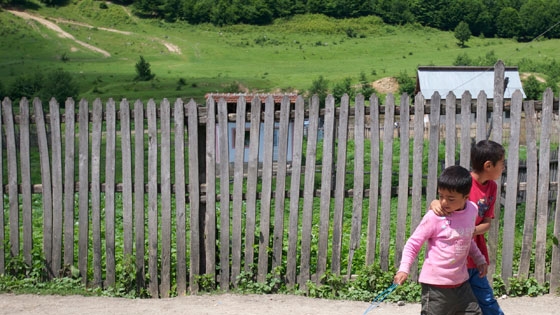Simona Persida Negru is washing clothes by hand at her Romanian village's water fountain. After she wrings them out, she will push the wet clothes home in her wheelbarrow. It's hard, but not as hard as carrying water in buckets from a stream up a muddy hill to her house.
"It used to take me three hours. I now get them all washed in thirty minutes and then I can go home and be with the kids," says 22 year-old Negru, a Roma mother of three. The water fountain was built after people in Valea Corbului banded together and asked their local municipality for support to install the pipe that directs clean water from a spring into a rough trough at the village crossroads.
The fountain is the heart of the community. One after the other, people of all ages and genders come on foot, by horse, bike or cart toting buckets, barrels, or plastic bottles to fill up or take a sip. Asking the authorities for a water pipe in a village where not a single house has running water or sewage might seem like a basic right. But it wasn't to the Roma who make up three quarters of this community and have spent decades living on the edges of mainstream society. "The problem is we are marginalized," says the Roma community's leader, Mircea Haica.



